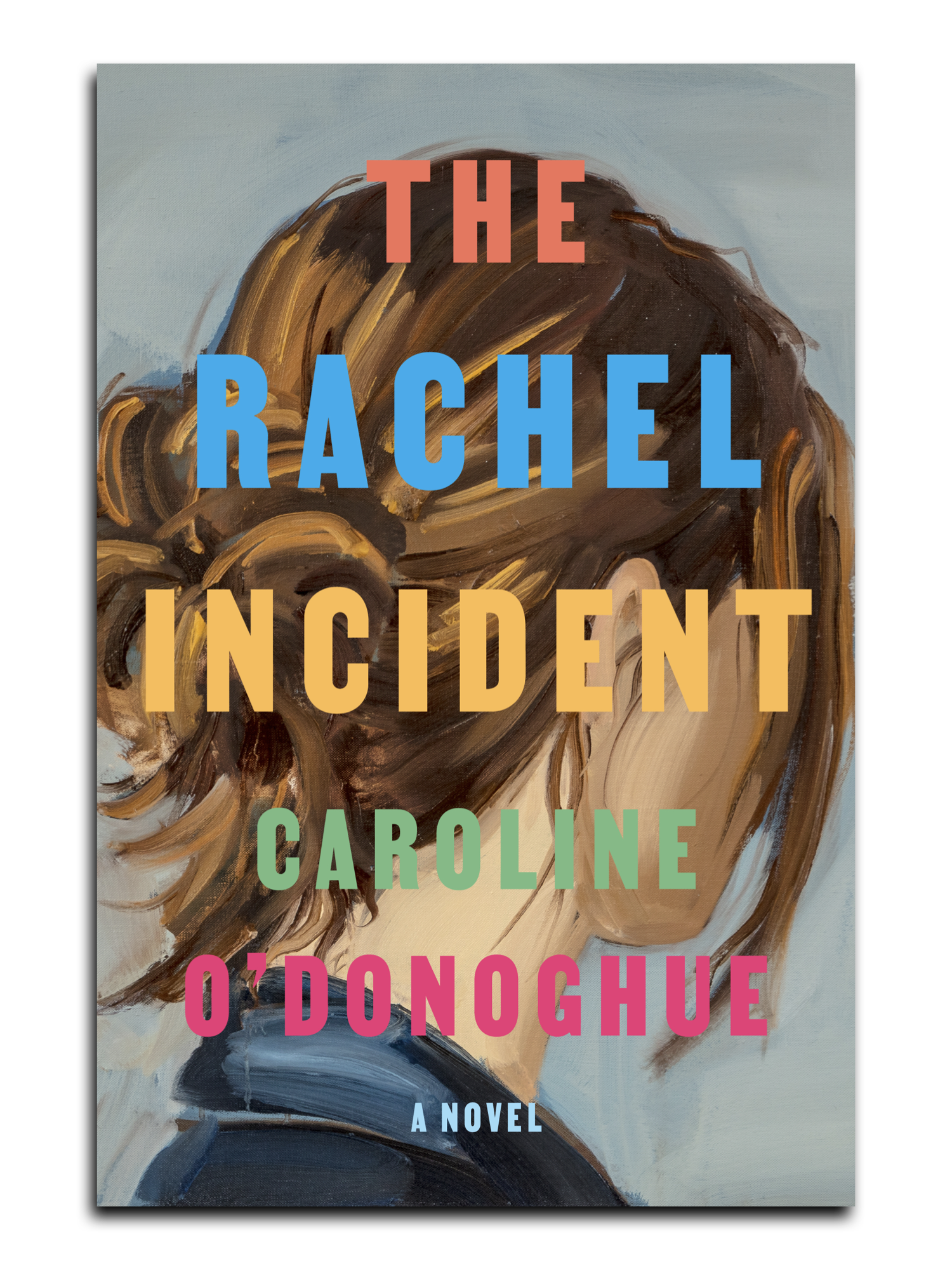The Rachel Incident by Caroline O’Donoghue
Amidst a looming financial crash, Rachel and James become friends and embark on a bohemian lifestyle in their early lackadaisical years of adulthood in Cork. This witty but emotional novel captures their unexpected connection and the chaotic landscape of Ireland at the beginning of the 2010s.
I have such mixed feelings about this three-star book. For starters, I struggled with Rachel from the beginning when she was a twenty-year-old college student. And despite chasing her for the whole of the novel, I don't feel that I ever quite got ahold of her — though there were hints in the final pages that I could've finally started to see her for who she'd become. O'Donoghue writes Rachel as almost sheer potential, but she feels loosely constructed and empty for much of the book, relying too much on potential alone.
An older Rachel narrates The Rachel Incident from a place (in present tense, mind you) of hindsight and tender nostalgia for her younger, less experienced self. While older Rachel has more self awareness than young Rachel, she still lacks the method to deliver the story in a way that quieted my unease and earned my trust. It was hard to feel as though she has control over her own narrative.
Here's the thing. I like the way O'Donoghue writes. The construction of her sentences, the way she pulls her ideas along trailing behind her, leaving a path for you to follow but also a place she can easily access and retread as needed.
But I didn't like her characters for the entire first half of the novel.
I had a hard time connecting with Rachel or finding her sympathetic. What is supposed to be her late coming into adulthood, appeared to me as simply being too weak a person. She was too smudgy, as though she were a collection of character flaws where one too many weak ingredients made it into the stew. James, who begins the story as her slightly older and closeted gay best friend, is too untethered from the story for so long — we only get him through Rachel's unfocused lens. And for the first half of the book, he's the more stereotypical for it, lacking much-needed nuance.
Part of the problem is a personal one…. Someone described this book as being able to enjoy the messiness of your 20s again. But my 20s were purposefully not messy; I got married and got a dog, bought a house, and had two kids. Before I left to stay home with my first born, I worked long hours at a bank on the trading room floor. I experienced 9/11, evacuating from uptown Charlotte because the bank-centered city was rumored to be on a list of potential attack sites. On and on…and Rachel's juvenile personality isn't something I don't believe, but it is something that would define why I would never be remotely interested in socializing with this person. While I wouldn't say Rachel is an unlikable character, I do admit that, if she were a real person, I personally would not like her.
While I don't believe a reader needs to like every main character, I do think they need to be able to find a facet with which they can relate, circumstances for which can earn sympathy. But Rachel, in the first third of the book, was so phony in her empty blandness. She didn't know who she was and seemed to lack personal willpower or motivation.
It isn't until much later in her tale that Rachel finds her own authority and is able to stand on her own, and that portion almost feels like a prelude to an epilogue rather than directly involved with the crux of the novel. But once O'Donoghue began (finally) closing in on the actual event that would (much) later come to be known by some as "The Rachel Incident," the novel found its legs.
It's at the halfway point that I began to feel O'Donoghue open up the door just a smidge and show me more real and more concrete possible versions of Rachel and James. While they hadn't yet experienced character growth, and Rachel in particular was exceptionally juvenile, at last there were hints of it coming. Or at the very least, events and circumstances that would more than likely generate character growth.
This was the portion of the book where it felt as though O'Donoghue had the idea of the book itself. And, not for nothing, this novel gave off strong debut novel feels. I thought more slack needed to be granted because this was a first foray. It is not.
Regardless, the too-long opening of the first half came across more as filler, and an extended introduction, rather than the reason for the novel's existence. Rachel finally started coming into focus, and while she still lacked a lot of qualities that I'd expect in someone of her age, background, and education level, the fact that she might eventually get on a path to personhood and realness as a fully-fleshed out character at least had me relaxed a bit and willing to finish the book.
O'Donoghue certainly has a way with words — her wit and frank approach to life comes across in the examination of the younger Rachel by the older one. She leans into the poetic nature of storytelling without flitting into the purple prose area. The Rachel Incident is a relaxed, casual novel that captures the uncertainty of early adulthood and the transformative episodes that shape us.
I received this book for free from the publisher via NetGalley in exchange for an honest review. This affected neither my opinion of the book nor the content of my review.

